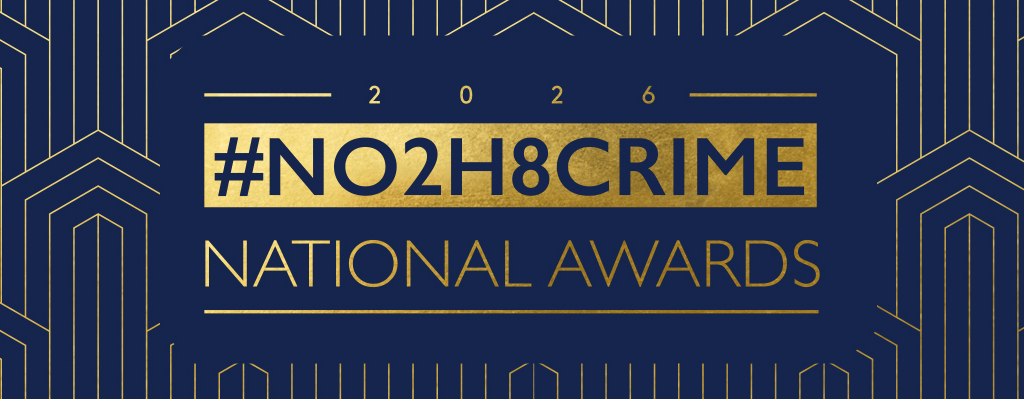Another organisation that we have partnered with on the No2H8 Crime Awards is the Anti-Bullying Alliance. It is a unique coalition of organisations and individuals, working together on preventing bullying and creating safer environments in which children and young people can live, grow, play and learn. The Anti-Bullying Alliance was established by the NSPCC and the National Children’s Bureau and they offer expertise in relation to all forms of bullying between children and young people.
- Why do you think No2H8 Crime Awards is a positive annual event?
It draws attention to the issue of hate crime from a positive angle that celebrate those who challenge this behaviour. We hope this will in turn encourage people to report hate crime and hate incidents and prevent hate crimes happening in the future. Our collective power all saying ‘no, we will not stand for this and here is what you can do’ will empower others. We have collective power and responsibility to make sure we create a community where we have equal rights and equal respect.
- Do you believe that hatred and intolerance are rising?
From our perspective of working with schools, we know that headway has been made over the past couple of decades to reduce hate speech in the classroom. However, recently there have been several reports that show a sharp rise in hate crimes and incidents in schools and these figures back up what we have been hearing from schools in recent years. The Anti-Bullying Alliance wants to see more awareness and support for schools on challenging discriminatory language and hate crimes and incidents in school.
- Why is it important for groups to work together and be seen working together?
At the Anti-Bullying Alliance, our tagline is ‘United Against Bullying’. As a membership organisation ourselves, we constantly see the greater value and impact of working collaboratively. Working together means that voices from across communities are heard, messages are amplified. And ultimately that means that change can take place.
- Why is it essential for communities to maintain vigilance against hatred, intolerance and prejudice?
We know the power for in instances of bullying of a bystander speaking up. Research in the USA in the noughties showed that in 90% of bullying situations, where a bystander [someone who sees but is not directly involved in bullying] just says ‘no’ to the situation and voices their dislike, the bullying stops. This shows the power we have to stop hate and prejudice.
The theme for this year’s Anti-Bullying Week is “All Different, All Equal”. Young people told us that their top concerns were about bullying related to differences – that of race, faith, disability, and sexuality and gender. It’s clear that they recognise negative discourse around them, but they want this to change. At a time of division, young people are telling us that they would like us to focus on the positive aspects of difference, and on finding out what links people from different walks of life.
We want to support communities to celebrate what makes them, and others, unique and help them understand why it’s important that every child feels included and is able to be themselves without fear.








